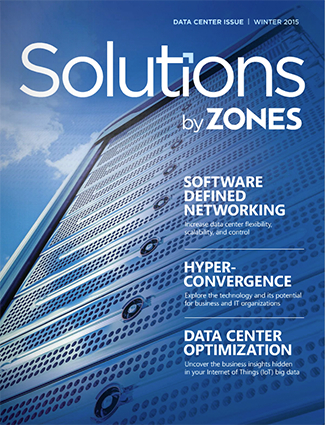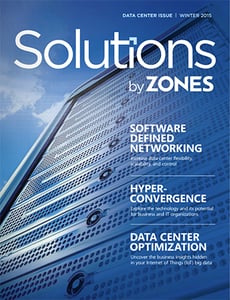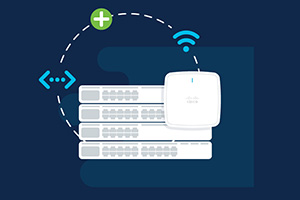Transforming the network from security liability to security asset
Turn your network into security sensor For years, IT leaders have been doing everything possible to guard the network from security threats. And with...


Hyperconvergence represents the latest step in the evolution of data center architecture. But what differentiates it from convergence, its successor? More importantly, what can hyperconvergence do for your business?
The concept of convergence is straightforward: combine distributed hardware components – servers, storage, and networking – into a single system. Examples include Cisco UCS®, IBM® PureSystems, and VCE Vblock® solutions.
Hyperconvergence takes things one step further.
With hyperconvergence, everything to run applications – servers, storage, virtualization software, networking, and management – is fully integrated and packaged together into a single, yet highly available, system. As a result, there are benefits you don’t necessarily get with a converged infrastructure.
Everybody – on both the business and IT sides – can benefit from the increased agility that comes with IT systems that can be brought online easily and scaled out to support a dynamic business. When new resources are needed, a hyperconverged system can be up and running in 15 minutes, from power-on to provisioning.
Just because the system is small doesn’t mean it can’t handle today’s demanding workloads. Multiple powerful servers, all-inclusive enterprise-class data services, and inherent data protection provide the same level of service, or more, as customary IT solutions.
From a business perspective, the benefits of hyperconvergence include reduced upfront capital and operational costs, thanks to fewer components than are required in conventional infrastructures. And IT admins really don’t need multiple IT specialists to keep their hyperconverged infrastructure up and running. An IT generalist will most often be able to bring it online and manage it on a day-to-day basis.
A hyperconverged system can help minimize design and deployment time because it’s delivered pre-built and workload-optimized, reducing complexity. You can assemble the blocks of architecture by easily “snapping” them together to scale seamlessly. When you need more, you just add another block.
Hyperconverged systems can also help you transition your infrastructure to the cloud. By deploying your virtualization or cloud project with a hyperconverged system, you can run all of your virtual desktops, critical enterprise applications, and development operation environments on one platform.
With condensed features, performance, and resiliency built in, hyperconverged systems are a quick and affordable way to modernize your IT infrastructure while letting your business operate securely, efficiently, and at scale.
Since one of hyperconverged infrastructure’s most compelling benefits is its ability to be scaled, or extended, Zones can help you start small. Then as time goes on, we can help you scale and migrate other services to the environment.
To get started, reach out to your Zones account executive to schedule a one-on-one strategy workshop with one of our solution architects.

Turn your network into security sensor For years, IT leaders have been doing everything possible to guard the network from security threats. And with...

As your business grows, so will the demands placed on your network. And it’s important to meet those demands – after all, your digital transformation...

With every passing month, it becomes more and more clear that remote work is here to stay. Having employees distributed away from the workplace is...